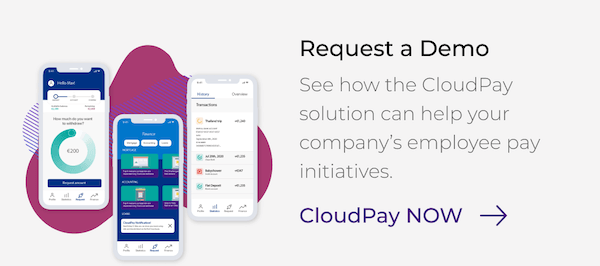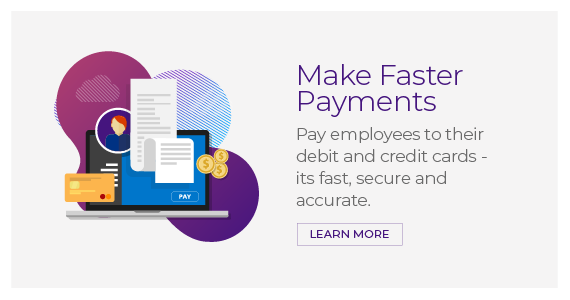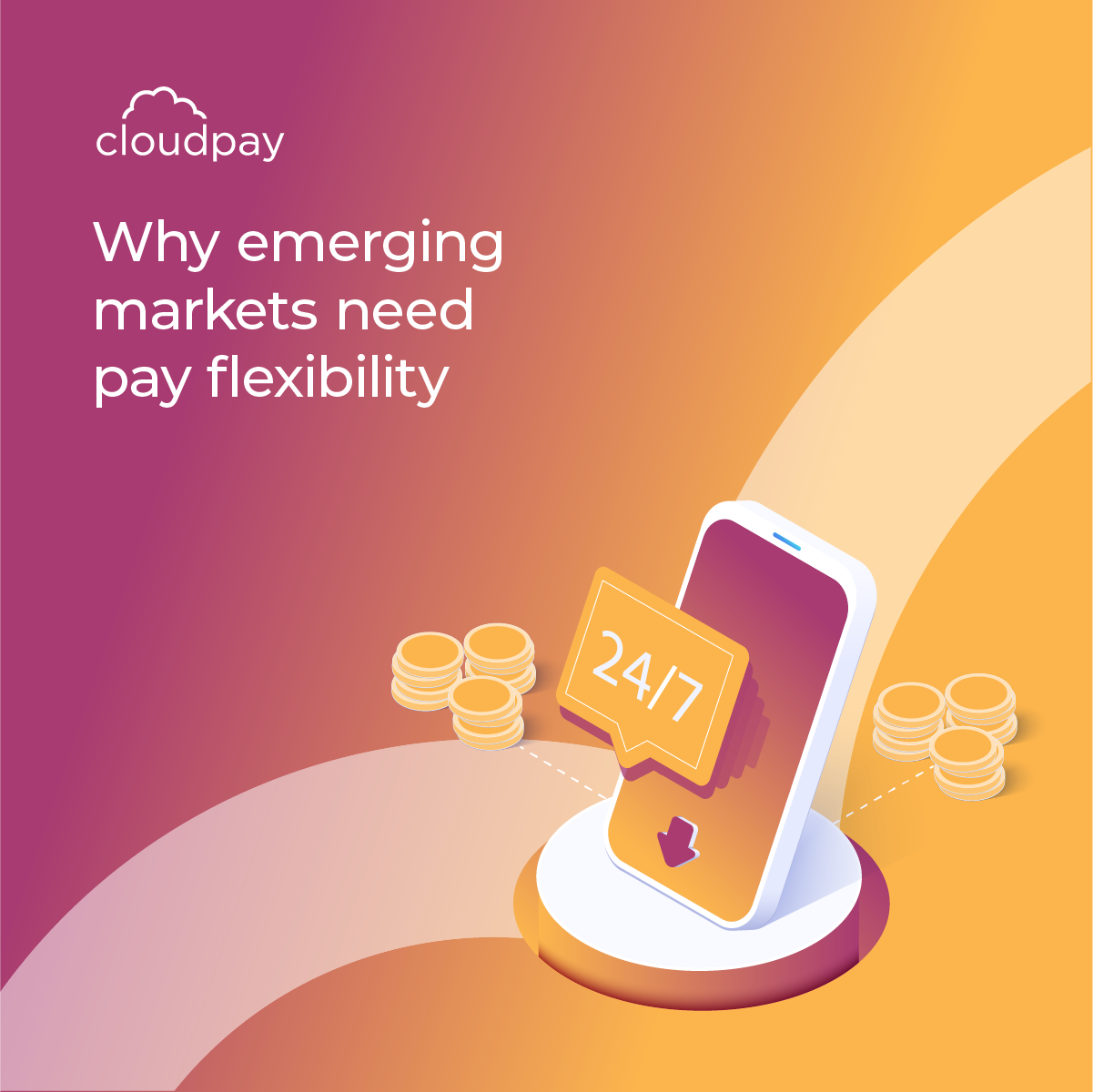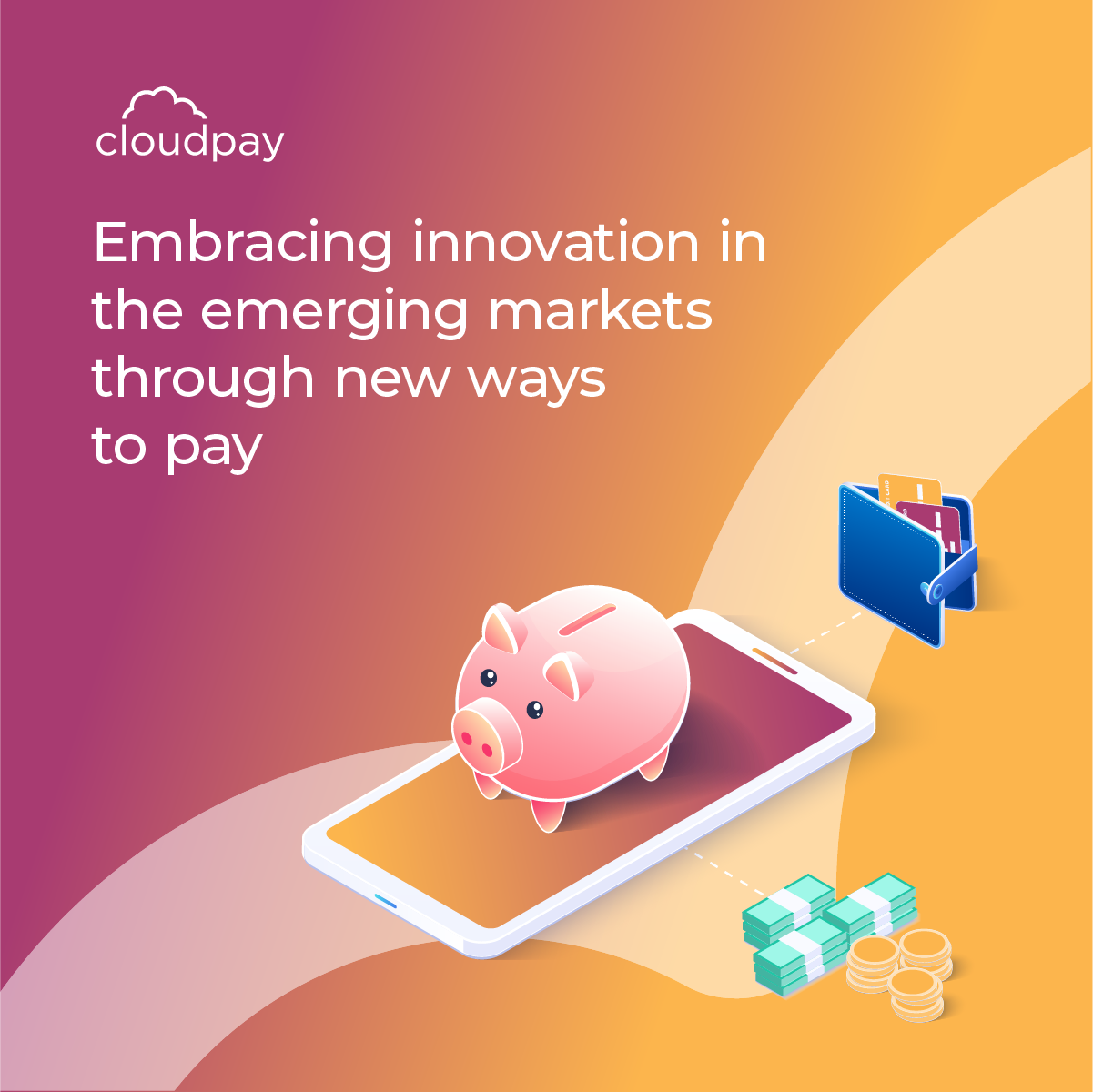We live in a world where people look for instant gratification in almost all areas of their lives. We also live in a world where many people face increasing pressures on their money, and often need quick access to their earnings in order to meet their financial obligations. The ability for Earned Wage Access (EWA) to address both of these demands explains why it’s gaining traction in many businesses around the world.
Earned Wage Access, also known as On-Demand Pay, represents a major shift in how employees are paid for the work they do. Instead of receiving their pay at pre-agreed, fixed intervals – normally the end of the month or the end of the week – employees accrue pay on a daily basis, in much the same way as they accrue paid leave entitlement. Then, at any time they wish, employees can withdraw a certain amount of the pay they have accrued, giving them unprecedented flexibility and control over their personal finances.
But how does Earned Wage Access work in practice? And how suitable is it for your business? In this article, we’ll take a look at the finer details.
Earned Wage Access: How it Works
Under EWA, employees will expect 24/7 access to the money they have earned. As a result, traditional payroll practices must evolve to meet that demand: for example, ‘running payroll’ on specific dates, or payment runs being made at pre-defined times, may no longer be practical.
Equally, existing payroll infrastructure may not be set up to handle regular demands from employees to be paid. If payroll teams have to deal with each inquiry manually, then EWA will quickly become a major drain on their time and prevent them from completing all their other day-to-day tasks. This means that an alternative solution is essential.
The ideal way to run EWA is through a cloud-based money movement solution that is accessible to employees and turns elements of employee pay into a self-service function. Such a solution could effectively run like a bank account: through a web-based portal or a mobile app, employees can log in at any time, see how much they have earned and withdraw a percentage of their earned wages at that moment in time.
Benefits of Earned Wage Access
Once implemented and fully up and running, Earned Wage Access delivers benefits that can spread far and wide throughout a company, not only for employees, but for the employer, too:
For employees:
- Flexible pay schedules: employees assume control over when they are paid, allowing them to align their pay dates with their personal financial commitments
- Financial safety net: with instant access to funds as and when required, employees can obtain emergency funds if a sudden bill or expense arrived, without incurring more debt
- Mobile app convenience: employees can conduct the entire pay procedure themselves, from their own devices, without any need for intervention from the payroll team
- Continuous pay calculation: employees accrue pay on a daily basis, meaning they can see their accessible funds increase with each day they work
For employers:
- Supports easier recruitment: Earned Wage Access is a major selling point in a competitive job market, one which can help attract the most talented candidates available
- Improves reputation: businesses which can demonstrate a commitment to support their employees’ financial wellbeing through EWA should, among other things, gain a positive reputation with both existing and prospective employees
- Reduces absenteeism: when employees feel they have control over their pay, they are less stressed by their finances, more motivated to come into work, and can be more productive when they’re there. Plus, when an employee can see the impact of a day’s work in numbers, they’re much less likely to skip one.
- Gives global businesses flexibility: an integrated EWA solution can remove significant administrative burden from international businesses, whose payroll teams normally have to deal with many different countries’ payroll requirements.
Pitfalls of Earned Wage Access
While Earned Wage Access can deliver transformative benefits to a wide variety of businesses, it is not necessarily suitable for everyone. Before pressing ahead with deploying an EWA solution, there are a few further considerations to bear in mind:
- Employee suitability: a good EWA solution will have a facility to customize rules and restrictions so that employees can’t abuse the system or get themselves into financial trouble. How your workforce will most likely react to the system should therefore be considered carefully.
- Costs: there will inevitably be a certain level of cost of implementing and then running the solution. These should be framed in the context of any savings and efficiencies that can be made by taking workload off the payroll team.
- Workforce size: the potential benefits are maximized when an EWA system is implemented globally across an entire employee population. Deploying this solution in a single country, or only within certain employee populations, prevents enterprises from reaping all the benefits EWA can provide to their employees, processes and brand reputation.
Is Earned Wage Access Right for Your Business?
Whether Earned Wage Access is a good idea for your business or not depends on a variety of different factors, including (but not necessarily limited to):
- The size of your workforce
- How many countries you operate in
- The pay scale and contract types of your workforce
- The industry in which you operate
- The differences in payroll legislation and requirements in each country you operate in (for example, differences between the United Kingdom and the United States)
The last of these factors is particularly important: industries where work tends to be more flexible in nature are ideal candidates for a transition for EWA. Workers in the growing gig economy, for example, can see their accessible pay grow in real time every time they check into work, and if they so wish, withdraw their earnings for the day the moment they finish their shift.
From an employer perspective, Earned Wage Access represents an innovative way to change payroll for the better, a golden opportunity to be progressive and forward-thinking, and a flexible means of supporting employees’ evolving working patterns and lifestyles. In a business landscape where remote, distributed work will become far more commonplace, EWA is the payroll model that perfectly complements the post-pandemic world.




